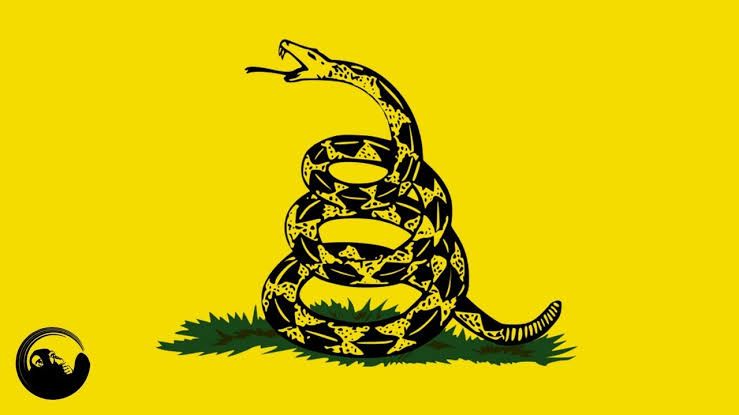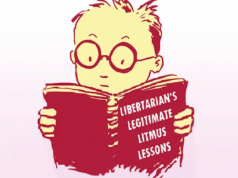The following article, written by M A Venkata Rao first appeared in the October 1958 issue of The Indian Libertarian magazine.
In Europe and America, a branch of the Enlightenment school of thought that prepared for and preceded the French Revolution developed a strand of socialism. While the central stream of inspiration released by the Revolution guided thought and reconstruction into channels of national democracy under the lead of the new commercial and industrial classes (whom Karl Marx called the bourgeoisie) side streams of what may be roughly called “socialist thought” sprung up seeking to mould social institutions including property and State on equality and fraternity rather than on liberty. The liberal democratic State evolved all over the continent and in North America on the basis of individualism which in the realm of economics assumed the shape of capitalism.
The leaders of the French Revolution and of the subsequent democratic evolution in England and other States evolved a philosophy of individualism stressing the key role of free economy or freedom of enterprise as the pivot of progress.
Socialist thinkers like Proudhon, Fourier and Saint Simon were not satisfied with the early decades of the working of capitalism in the Napoleonic era and the Restoration of the Bourbons. They saw clearly that the ideals of equality and fraternity that imparted such a glow to the revolutionaries as if they were the creators of a new dawn of perfection were jettisoned by the bourgeoisie. The new enterprise and wealth joined hands with empire and were concentrated in the hands of the new rich, a small section of the nation. The bulk of the masses remained poor and were exploited by the bourgeoisie almost as much as the aristocracy oppressed the peasants in their ancestral estates.
In England too discontent at the new exploitation of the bourgeoisie strengthened and expressed itself in a number of movements of which the Chartist struggle was the chief. Factory Acts and the First Reform Act of 1832 were the first symptoms of the new social conscience. The new world of commerce and industry of the Industrial Revolution came to be defended by liberal democratic thought of which Bentham, James Mill and his more famous son John Stuart Mill were the principal protagonists. Their work in economic, legal and political thought guided the development of democratic institutions and civil rights throughout the nineteenth century.
But towards the end of it, new streams of thought came to be felt making for socialism and collectivism. One was the idealism of T. H. Green and Bernard Bosanquet, which gave a new ethical basis to the State and coalesced in its effect with socialism. Fabianism assumed greater importance as the source of reform and welfare as the century turned the corner and the Labour Party adopted it as the sheet-anchor of their policy. Thus British thought sublimated the hate-filled class-war doctrine of violent revolution sponsored by Karl Marx into its own characteristic evolutionary, non-violent, parliamentary way of introducing socialism or collectivism. Today it has become the official philosophy of the Labour Party and the climate of thought generally among the intelligentsia of all parties.
On the continent, the early part of the century began with the dominance of the Positivism and Religion of Humanity of August Comte. His scientific humanitarianism coloured the intellectual landscape in France and was reinforced with the integral or communitarian forms of socialism sponsored by Proudhon, Saint Simon and Fourier. These thinkers tried to cure property of its individualism or selfishness by suggesting methods of sharing it in communes or phalansteries of various kinds. They opposed also the centralising bureaucratism of the expanding State.
A sideline of thought adopted forms of anarchism in trying to resist the crushing power of the Omni-competent State. Prince Kropotkin and Bakunin became the principal representatives of this anarcho-communist trend of thought.
But the most successful of these trends was that represented by Karl Marx, partly because he founded the International Working Men’s Movement which acquired influence from the middle of the century and ultimately became the dominant form of socialism. It has been the misfortune of humanity that it was the violent, class-war doctrines of Karl Marx that got crystallised as the authentic form of socialism and the sole scientific system and saviour of labour throughout the world. The adherence of Lenin and the Russian revolutionaries and that of the German social democrats under Lassalle contributed to enthrone Marxist communism in this dominant position. The Russian Revolution of 1917 and its triumphant career to its present position of World Power challenging the whole free world has added hypnotic power to this collectivist, conspiratorial, violent form of communism.
Communism has today become the climate of thought in most countries. Even where a small part of the intelligentsia is free from the prevailing views, they are influenced all the same to a more or less extent, so that the cause of freedom is put on its defence. It is not State aggrandisement that has to explain and justify itself but on the other hand the claim of human liberty and individuality!
The capitalist Robert Owen fell in with the French socialists and initiated worker’s communes or settlements in England, Scotland and even the United States in the early decades of the last century. An American thinker called Josiah Warren joined Owen’s socialistic settlement and was inspired to start his own village settlements on a more individualist basis. He developed a time and labour theory of value in his own way. In Karl Marx’s hands, the theory was distorted to become the surplus theory of value in order to support the thesis that all capital is robbery of the value created by labour. In Warren’s hands, it became the foundation of a new equalitarian individualism which asserted the right of each individual to the proceeds of his labour as measured by the time taken in producing the product of industry. Measurement of labour contributions became a subtle and vexatious calculation and source of trouble among members of settlements.
His example inspired a line of thinkers to reflect on the social aspects of individual liberty. Stephen Pearl Andrews developed the outlines of a science of society. Others developed the aspects of cooperation and mutual aid in banking and other forms of economic production and exchange. Others specialised in problems of currency and inflation. Others investigated the effects of State interference in banking, currency and economy generally. These thinkers of the libertarian school in America developed reflection both into the role of property, its meaning, function and limitations and into the role of the State in social affairs and individual life.
The general line of thought in regard to both aspects was to discover the degree of waste and frustration and complication involved in anti-social uses of property such as are indulged in by monopolies and cartels by the State outrunning its legitimate field of police and justice and by welfare policies of robbing Ram to pay Kishen. These excesses of the individual and the State lead to ever-rising costs of production, to excessive pressure of economic groups on the State to get something for nothing, to rising inflation and confusion of values all round and to the collapse of confidence in currency and economic production generally and to the emergence of unnecessary economic crises with over-or under-production and unemployment.
The remedy is to return to individualist economy regulated by provisions against monopolies to safeguard the equal liberty of all. This principle of the equal liberty of all for engaging in free enterprise within the law (to exclude fraud and the annexation of unearned profits) is sufficient, say the libertarians, to justify the imposition of checks on those who take undue advantage of the freedom granted.
If these principles are intelligently followed, it is urged, the State and society will be freed from the excessive burdens from which they are suffering at present under the influence of collective ideas. They will be free from much of the present load of public debt. The State will be compelled by individualist citizens to live within its means and not to create artificial money by issue of loans and not to burden the present generation by ever-rising loads of interest on public debt. Though the principal is supposed to be paid by future generations, as a matter of fact, it is the present generation that has to pay heavy interest. These interest payments to one class of citizens namely bond-holders will distort the economy by conferring on them more purchasing power than on the rest of the community. This distorts the economy in favour of unearned incomes annexing too much of the capital resources of the community towards the satisfaction of a few, leaving the demands of the vast majority starved and unfulfilled or under-fulfilled.
The central stream of thought in advanced democratic countries like the USA is that of liberal democracy formulated in the early and middle periods of the nineteenth century. Today technological industry, the growth of population and the advance of communication media-radio, newspapers, wireless, aeroplane for passenger and goods traffic etc. have all conspired to confer more and more powers on the State to regulate the myriads of new inter-relations among citizens. Organisation has tended to become ever more complex and interwoven. Hence the feeling of inevitability in regard to the growing tendency towards collectivism and the expansion of State power.
Collectivism has become the illusion of the epoch today in which the rights and duties of the individual citizen as a self-determining and self-realising person are lost to view. Individuals and small groups feel lost in the vast agglomerations of large nation-States. Even small States feel a prey to massive influences and pressures impinging into their life from outside.
The wheel has come full circle. The individualist philosophy of John Stuart Mill and his followers which guided liberal democracy is today eclipsed by the communist collectivism of Karl Marx, particularly in respect of economy. Adam Smith and Mill are both put into the shade. They have become “Gods that failed”.
But today doubts and misgivings are being felt in many quarters that we have embraced a remedy worse than the disease. After all, the only known reality in human life is the individual centre of experience, of thought, feeling, action and fellowship-individual men and women.
Sociologists are formulating theories of the right relationship between primary and secondary groups. The former like the home, neighbourhood and religious or educational fellowship are primary in moulding human life. They deal with individuals as full rounded persons and not as fragments-hands or members or customers or wage earners or employers or officers or rank and file anonymous common men. Secondary associations like occupations, amusements or casual groups as in hotels and railway carriages are necessary but if they crowd out much of the scene and activity of life, man is atomised and impoverished. Neuroses come to prevail. Suicides, mental aberrations, juvenile delinquents, divorce proceedings, prostitution, gambling, alcoholism, corruption in economic and political life-will all make themselves felt in disturbing degrees.
Libertarians call for a greater simplification of institutions, a reform in the use of property and a return to the limited role of the State in social life so that the submerged individual may be released for a new career of purposeful, healthy activity in which science and the other achievements of the modern spirit may be used more wholesomely to help men and women to fulfil themselves in pursuits within their reach and power of assimilation.
The libertarians call for a new relationship to land, so that unearned income may not accumulate in hands that do not contribute to production. Since land is limited unlike other forms of industrial or commercial property, it needs to be kept in the hands of people who actually use it for production, eliminating functionless or parasitic holders.
The libertarians are also interested in education. They are exploring the avenues whereby the individual may be led through self-directed thought and investigation to discover the right relations between individual and society. The new aim is to strengthen dispositions of cooperation and individual self-reliance during the process of learning. It is also necessary to destroy the roots of class antagonism by imparting the joys and skills of using tools so that the ancient class distinction of workers and lords may disappear in the minds of men and women. Work and culture should be integrated.
Freedom in economic and political life has to be supported by a new psychology of cooperative and creative living. fostered in creative education inspired by a vision of human unity and human progress in free and joyous fellowship.
If a gradually increasing elite imbued with these ideals could be developed through discussion, propaganda and group life, the collectivist illusion of the epoch could be made to melt and a better day of happy, free, cooperative humanity can be ushered in by and by. This is the aim of the Libertarian Social Institute.
The original document can be accessed here.
IndianLiberals.in is an online library of all Indian liberal writings, lectures and other materials in English and other Indian regional languages. The material that has been collected so far contains liberal commentary dating from the early 19th century till the present. The portal helps preserve an often unknown but very rich Indian liberal tradition and explain the relevance of the writings in today’s context.
Post Disclaimer
The opinions expressed in this essay are those of the authors. They do not purport to reflect the opinions or views of CCS.






